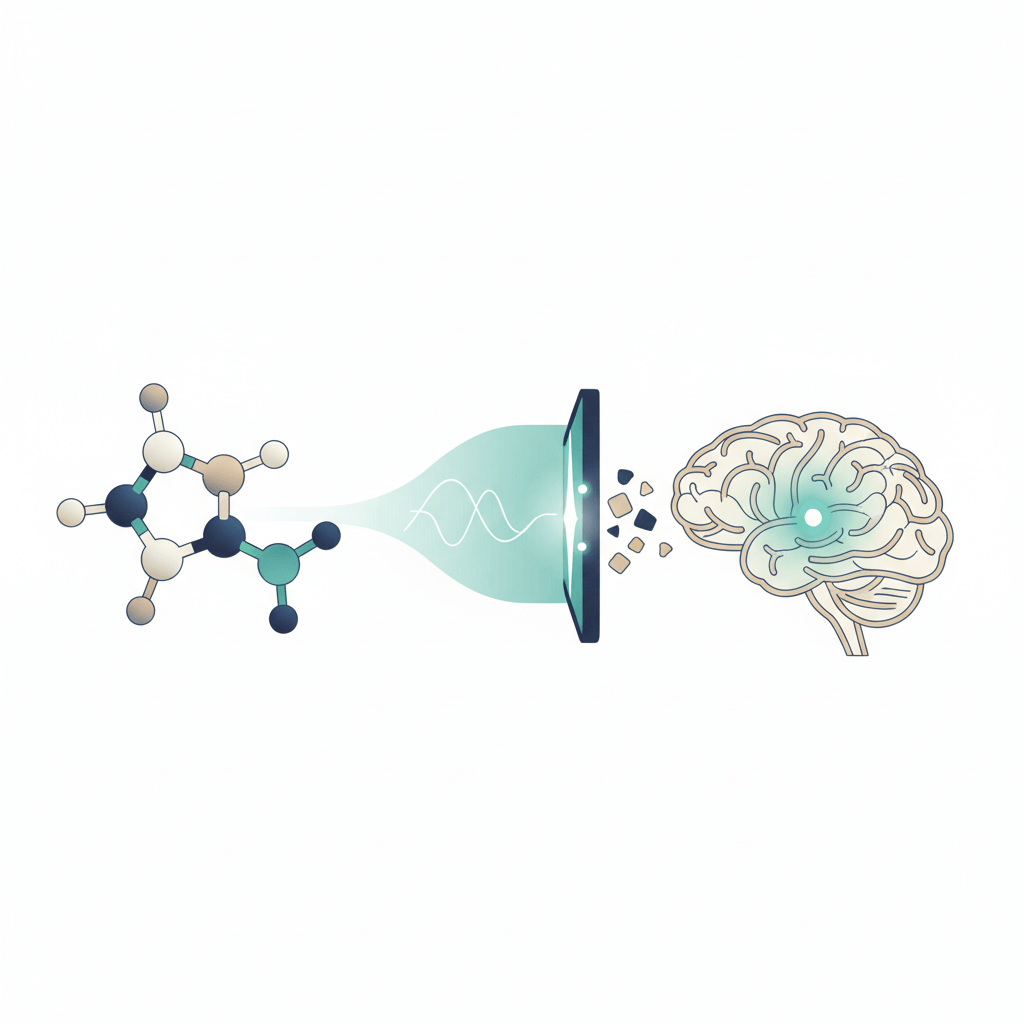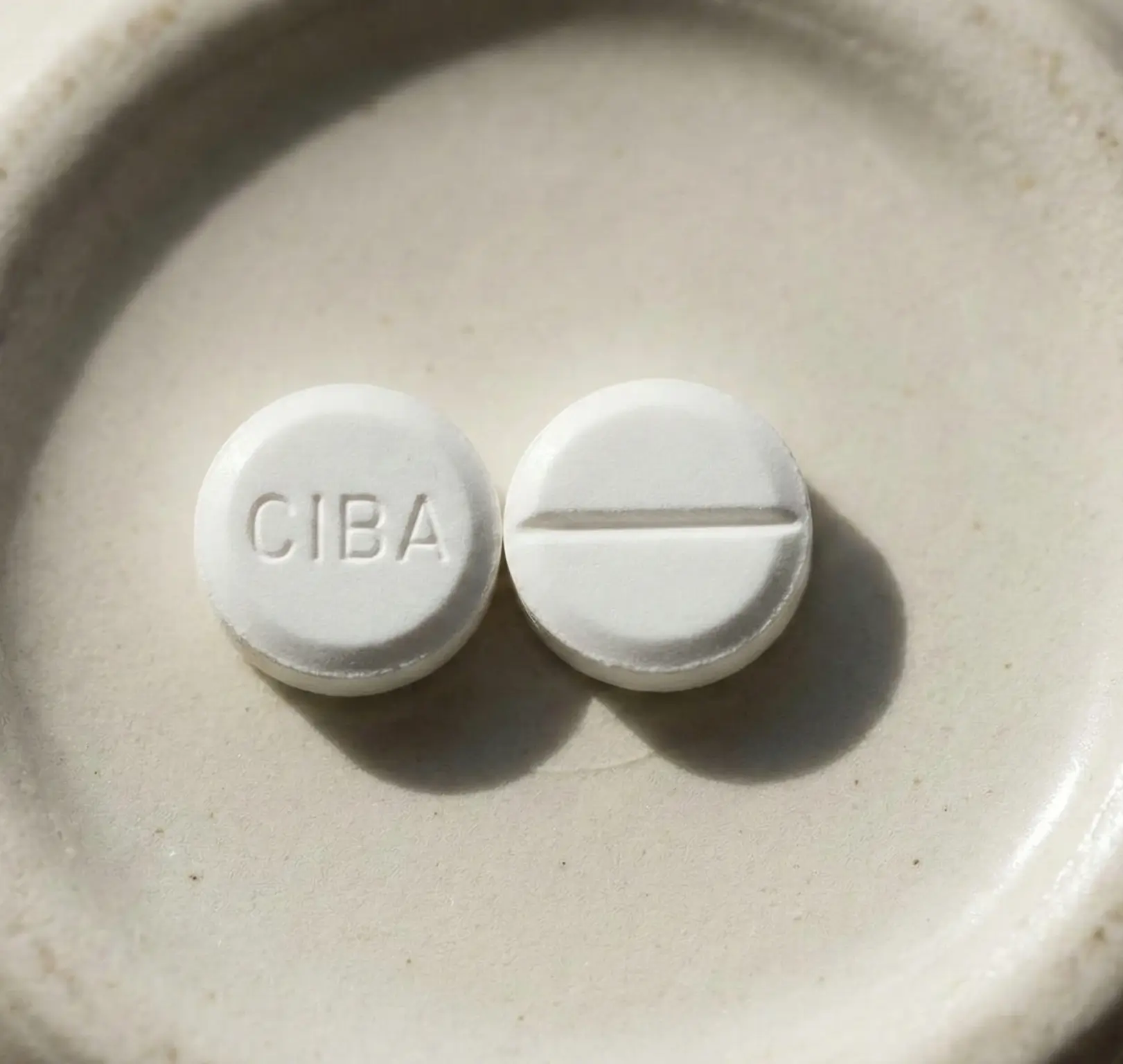Methamphetamine Vaccine Overview
In the ongoing battle against methamphetamine addiction, researchers have been exploring the potential of a methamphetamine vaccine as a promising intervention. This section provides an introduction to the methamphetamine vaccine and explains its mechanism of action.

Introduction to Meth Vaccine
The methamphetamine vaccine, such as IXT-v100, is designed to stimulate the immune system to produce antibodies that bind to methamphetamine molecules. This vaccine aims to reduce the rewarding effects of methamphetamine and decrease the motivation to engage in drug use. By targeting the drug itself, the vaccine offers a unique approach to addressing methamphetamine use disorder (MUD).
Research into the development of the methamphetamine vaccine has shown promising results. Vaccination with IXT-v100 has been found to elicit antibodies with high affinity for methamphetamine, indicating its potential as an effective treatment for MUD. This innovation in addiction treatment holds the potential to make a significant impact on individuals struggling with methamphetamine addiction.
Mechanism of Action
The mechanism of action of the methamphetamine vaccine revolves around the production of anti-methamphetamine antibodies. When a person receives the vaccine, it stimulates their immune system to produce specific antibodies that bind to methamphetamine molecules. These antibodies effectively neutralize the drug, preventing it from reaching the brain and eliciting its rewarding effects.
By producing a robust immune response against methamphetamine, the vaccine reduces the amount of the drug that reaches the brain. This, in turn, aims to diminish cravings and the motivation to engage in drug use. By neutralizing the effects of methamphetamine, the vaccine presents a potential tool in the treatment of methamphetamine addiction.
The development of anti-drug vaccines, including the methamphetamine vaccine, represents a novel strategy in the field of addiction treatment. By leveraging the body's own immune response, these vaccines aim to provide a targeted and long-lasting approach to reducing drug cravings and preventing relapse.
In the subsequent sections, we will explore the research findings on the efficacy of the methamphetamine vaccine in animal studies and its potential impact on meth-seeking behavior. We will also delve into the broader context of the methamphetamine abuse epidemic and the future of methamphetamine vaccines.
Research Findings on Meth Vaccine
The development of a methamphetamine vaccine has shown promising results in various research studies. These findings provide valuable insights into the efficacy of the vaccine in animal models, its impact on meth-seeking behavior, and its potential as a treatment for addiction.
Efficacy in Animal Studies
Studies conducted on Wistar rats have demonstrated the effectiveness of vaccination with the meth vaccine IXT-v100. The vaccine elicits antibodies with high affinity for methamphetamine, indicating its potential as an effective treatment for methamphetamine use disorder (MUD) [1].
Vaccination with IXT-v100, adjuvanted with glucopyranosyl lipid A stable emulsion, has been shown to reduce the percentage of animals that self-administered a moderate level of methamphetamine. This decrease in meth-taking behaviors suggests the potential of the vaccine in reducing drug use.
Impact on Meth-Seeking Behavior
Research findings indicate that vaccination with IXT-v100 significantly attenuates meth-seeking behavior. Studies involving meth-primed reactivity in male rats showed that the vaccine effectively reduced the motivation to seek methamphetamine, highlighting its potential in combating addiction.
Potential for Addiction Treatment
The efficacy of IXT-v100 in reducing both meth-taking and meth-seeking behaviors has been evaluated in rats. These studies involved self-administration of methamphetamine over an 8-week period, followed by a forced abstinence period during which the animals were vaccinated. The results suggest that vaccination with IXT-v100 may be effective in decreasing drug-taking and drug-seeking behaviors in individuals suffering from methamphetamine use disorder.
The research findings on the methamphetamine vaccine provide valuable insights into its potential as a treatment for addiction. While these studies have primarily been conducted on animal models, they lay the groundwork for further exploration of the vaccine's effectiveness in humans. Continued research and clinical trials are necessary to fully understand the potential of methamphetamine vaccines in treating individuals struggling with methamphetamine use disorder.
Methamphetamine Abuse Epidemic
The abuse of methamphetamine has become a global epidemic, with significant consequences for individuals and communities worldwide. This section explores the global impact of methamphetamine abuse and the alarming rise in cases.
Global Impact
Methamphetamine abuse is a major concern that affects countries across the globe. According to a study published in the National Center for Biotechnology Information (NCBI), the number of patients in the USA admitted to treatment for METH or amphetamine abuse increased over 400% from 1993-2003. This data indicates the growing severity of the issue and highlights the need for effective interventions and treatments.
The impact of methamphetamine abuse extends beyond individual users. It places a significant burden on healthcare systems, law enforcement agencies, and communities. The abuse of methamphetamine can lead to various health problems, including cardiovascular complications, neurotoxicity, and increased vulnerability to infectious diseases. The societal consequences include increased crime rates, strain on social services, and disruption of families and communities.
Rise in Meth Abuse Cases
The rise in methamphetamine abuse cases is a cause for great concern. Law enforcement agencies in 45 states in the USA have identified METH as the greatest drug problem, highlighting its prevalence and impact. The availability and accessibility of methamphetamine have contributed to its increased use and subsequent addiction.
The exact reasons behind the rise in methamphetamine abuse cases are complex and multifaceted. Factors such as social and economic conditions, availability of precursor chemicals, and the allure of the drug's effects all play a role. Additionally, the highly addictive nature of methamphetamine further exacerbates the problem, making it difficult for individuals to break free from its grip.
Addressing the rise in methamphetamine abuse requires a comprehensive approach that includes prevention, education, treatment, and support systems. It is crucial to invest in evidence-based interventions and strategies that target both the individual and the larger community.
Efforts to combat the methamphetamine abuse epidemic should focus on raising awareness, implementing effective prevention programs, and providing accessible and comprehensive treatment options. Additionally, research into innovative treatment approaches, such as the development of a methamphetamine vaccine, holds promise for managing addiction and reducing the impact of the epidemic.
By understanding the global impact of methamphetamine abuse and recognizing the rise in cases, we can work towards implementing effective strategies to address this pressing issue. Collaboration between healthcare professionals, policymakers, law enforcement agencies, and community organizations is essential to tackle the methamphetamine abuse epidemic and support individuals on the path to recovery.
Immunotherapy for Meth Addiction
Immunotherapy, specifically the use of the methamphetamine (METH) vaccine, is emerging as a potential treatment for meth addiction. This section will explore the advantages of immunotherapy over traditional therapies and discuss the role of anti-METH antibodies in combating addiction.
Advantages over Traditional Therapies
Immunotherapy for meth addiction offers several advantages over traditional therapeutic approaches. Unlike small molecule agonists or antagonists, immunotherapies provide a different mechanism and therapeutic utility. These therapies work by confining METH distribution and blocking its effects primarily in the bloodstream without penetrating the central nervous system (CNS) [3].
One major advantage of immunotherapy is that it provides a systemic approach to combating meth addiction. Anti-METH monoclonal antibodies, a key component of immunotherapy, have shown promise in reducing METH-induced effects in multiple organ systems simultaneously, including the CNS and cardiovascular system (CVS). These antibodies have the potential to provide neuroprotection and cardiovascular protection simultaneously after treatment.
Additionally, immunotherapy offers the potential for long-lasting effects. Active vaccination against METH has been shown to attenuate physiological and behavioral effects of the drug in preclinical studies, including hyper- and hypothermia, wheel activity, and stereotypy. The vaccination also alters the trajectory of stimulant sensitization, indicating the potential for sustained therapeutic benefits.
Role of Anti-METH Antibodies
Anti-METH antibodies play a crucial role in immunotherapy for meth addiction. These antibodies bind to METH molecules, preventing them from entering the CNS and exerting their effects. As a result, the antibodies effectively antagonize the locomotor effects of METH in animal models, even when administered after the drug. This indicates their therapeutic potential in reducing METH-induced effects and combating addiction [3].
Active vaccination against METH can generate high antibody titers with nanomolar affinity for the drug. These antibodies sequester METH in the periphery, away from the CNS, thereby blocking the thermoregulatory and psychomotor responses produced by the drug. This sequestration and neutralization of METH by the antibodies contribute to the attenuation of its physiological and behavioral effects, further highlighting the potential of immunotherapy in treating meth addiction.
The development of immunotherapies and the role of anti-METH antibodies in combating meth addiction are promising areas of research. As scientists continue to explore and refine these approaches, immunotherapy may offer a new and effective treatment option for individuals struggling with methamphetamine addiction.
Development of Anti-METH Vaccines
Efforts to develop vaccines for the treatment of methamphetamine addiction have shown promising results in preclinical studies. These vaccines aim to elicit an immune response that produces antibodies capable of binding to methamphetamine and preventing its psychoactive effects. Let's explore the two key aspects of the development of anti-METH vaccines: preclinical studies and novel vaccine formulations.
Preclinical Studies
Preclinical studies conducted on animals have demonstrated the potential efficacy of methamphetamine vaccines. Active vaccination with certain haptens has been shown to induce antibodies that can capture methamphetamine in the bloodstream, thereby reducing its ability to produce physiological and behavioral effects. For example, in rats, active vaccination attenuated the physiological and behavioral effects of methamphetamine, such as hyper- and hypothermia, wheel activity, and stereotypy after methamphetamine administration. The vaccination also altered the trajectory of stimulant sensitization.
One notable vaccine, the MH6 vaccine, demonstrated promising outcomes in preclinical studies. When compared to a control vaccine, the MH6 vaccine attenuated methamphetamine-induced decreases in body temperature and locomotor activity. Rats that received the MH6 vaccine had higher methamphetamine serum concentrations but lower brain methamphetamine concentrations than control rats. Methamphetamine concentrations were found to correlate with individual antibody titers, indicating the effectiveness of the vaccine in sequestering methamphetamine in the periphery of the rats and blocking its thermoregulatory and psychomotor responses.
Novel Vaccine Formulations
Researchers have explored various vaccine formulations to enhance the effectiveness of anti-METH vaccines. One approach involves conjugating methamphetamine-like molecules, known as haptens, to carrier proteins. For instance, the combination of tetanus-toxoid (TT) conjugated to succinyl-methamphetamine (SMA) and alum with the entolimod adjuvant has shown promising results. This formulation produced a robust anti-methamphetamine antibody response, attenuating methamphetamine-induced locomotor activity in mice and reinstatement of self-administration behavior in rats, without causing any untoward cardiovascular effects.
These novel vaccine formulations aim to elicit a strong immune response against methamphetamine and improve the efficacy of the vaccines in reducing the addictive and reinforcing effects of the drug. While preclinical studies have provided encouraging results, it's important to note that no methamphetamine vaccines have advanced to human clinical trials thus far. Further research and development are necessary to evaluate the safety and efficacy of these vaccines in human subjects.
The development of anti-METH vaccines represents a promising avenue for combating methamphetamine addiction. Although challenges and opportunities lie ahead, continued progress in this field may offer a new approach for addiction treatment and contribute to addressing the global impact of methamphetamine abuse.
Future of Methamphetamine Vaccines
As research into methamphetamine vaccines progresses, there are both challenges and opportunities that shape the future of these potential treatments.
Challenges and Opportunities
Developing effective anti-drug vaccines, including methamphetamine vaccines, comes with certain challenges. One of the main challenges is the reversibility of vaccination. Unlike traditional vaccines that provide long-term immunity, anti-drug vaccines may require booster doses to maintain their effectiveness. This presents a challenge in ensuring consistent and sustained protection against drug use.
Combining vaccines with other addiction treatments is another avenue of exploration. By integrating vaccines with existing psychological interventions or medications, the potential for improving addiction outcomes can be enhanced. This combination approach may address the multifaceted nature of addiction and provide a more comprehensive treatment strategy.
While challenges exist, the future of methamphetamine vaccines also holds promising opportunities. Preclinical studies have shown positive outcomes, with certain haptens inducing antibodies capable of capturing the drug in the bloodstream and preventing its psychoactive effects. These findings provide a foundation for further research and development.
Progress Towards Clinical Trials
Although no methamphetamine vaccines have advanced to human clinical trials as of yet, progress is being made in this area of research. One study has shown significant progress in developing a novel methamphetamine vaccine in vitro and in vivo, demonstrating the potential to prevent methamphetamine addiction in preclinical models.
To overcome the immunogenic challenges posed by methamphetamine, the study employed a conjugation approach. Methamphetamine, being a small molecule lacking immunogenic effects, was conjugated to a large immunogenic carrier, mannan, via a peptide linker. This conjugated vaccine showed stability over three months in different storage conditions, providing promise for further development.
These advancements in preclinical studies pave the way for potential clinical trials in the future. However, it is crucial to ensure that the vaccine can generate a sufficiently high antibody response in each patient to combat methamphetamine addiction effectively. Further research is needed to determine the safety, efficacy, and long-term effects of methamphetamine vaccines before they can be made available for human use.
The future of methamphetamine vaccines holds promise, but it also requires continued research, investment, and collaboration to bring these vaccines closer to clinical applications. By addressing the challenges and leveraging opportunities, methamphetamine vaccines may play a crucial role in combating the global issue of methamphetamine abuse and aiding individuals in overcoming substance use disorders.
References
- [1]: https://pubmed.ncbi.nlm.nih.gov/31758209/
- [2]: https://www.ncbi.nlm.nih.gov/pmc/articles/PMC10820210/
- [3]: https://www.ncbi.nlm.nih.gov/pmc/articles/PMC2741685/
- [4]: https://www.ncbi.nlm.nih.gov/pmc/articles/PMC3561477/
- [5]: https://www.ncbi.nlm.nih.gov/pmc/articles/PMC9503672/
- [6]: https://www.ncbi.nlm.nih.gov/pmc/articles/PMC10004339/













